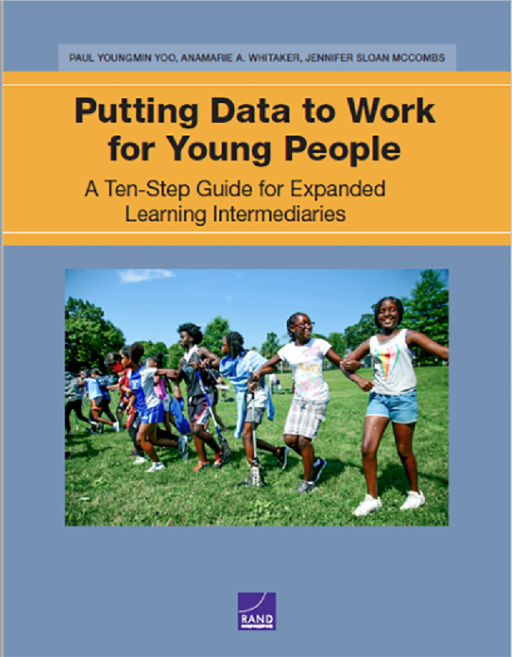Research Approach
The authors reviewed data collection efforts by out-of-school-time intermediaries in three cities—Boston, St. Paul, and Providence, R.I.—and developed a step-by-step plan to help nonprofits in other cities implement their own processes for gathering and using data effectively.
This guide draws on efforts by Every Hour Counts, a national coalition of out-of-school-time intermediaries. In 2014, Every Hour Counts released a measurement framework to help intermediaries better make use of data. The focus was on data at the system, program, and youth levels. The framework aimed to guide intermediaries on such things as how to use data to coordinate continuous improvement efforts and identify system strengths and areas for improvement. Every Hour Counts then engaged the RAND Corporation to evaluate efforts in three cities (Boston, St. Paul, and Providence, R.I.) where intermediaries put the framework to work.
To that end, RAND researchers reviewed:
- The quality of the data that the intermediaries in the three cities collected
- The measurement tools they used
- The condition of their databases
- The way they stored, processed, and used data
- The resources—human, material, and financial—that they brought to bear on their data-related work
The review revealed a number of organizational, technical, and political challenges. Researchers then developed a 10-step plan to help out-of-school-time intermediaries address these challenges.

